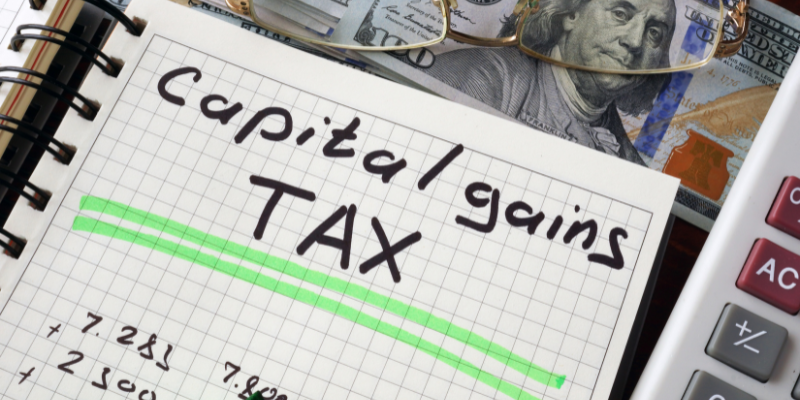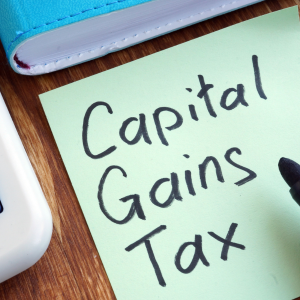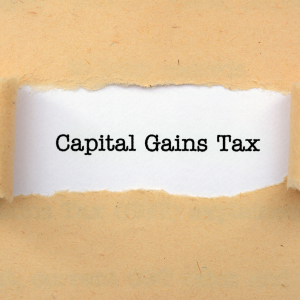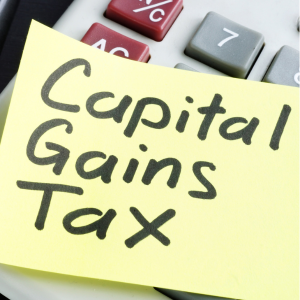
Washington’s Capital Gains Tax After Selling a House
It can be tricky to figure out the capital gains tax in Washington when you sell your home. When all the facts are known, homes generate the most revenue possible while still adhering to the state’s tax regulations. People buying a house should read this guide, as it provides detailed information about tax rules and deductions in Washington. It doesn’t matter how long you’ve been selling homes; these tax changes can change how you handle your money and how well you do in the market in general. If you want to get the most money when you sell your house, read these tips.
Key Highlights
- Washington’s capital gains tax affects homeowners’ sale profits and requires awareness of federal exemptions.
- Real estate excise tax in Washington is tiered and based on the sale price, which impacts the net proceeds.
- Federal capital gains exemptions offer relief if your home meets primary residence criteria.
- Calculating capital gains requires an understanding of the sale price minus the original cost, adjusted for any improvements made.
- Washington’s new tax law requires homeowners to plan for the potential capital gains tax on asset sales exceeding $250,000.
Understanding the Basics of Washington’s Tax System
People who own homes in Washington state face unique tax challenges, particularly when they must contend with capital gains tax upon selling their home. People who want to sell their home need to know how the state handles both capital gains and the real estate income tax. People can be better prepared to sell their homes if they are aware of these taxes. This summary provides more detailed information about how the capital gains tax works for home sales and what the Washington real estate excise tax entails for these transactions. Homeowners in Washington state can navigate the complex process of selling their homes if they understand these basic tax considerations.
How Capital Gains Tax Applies to a Home Sale in Washington

If you live in Washington and sell your home, you need to know about the capital gains tax. In Washington, pay is not taxed, but money made from selling certain assets, such as homes, is taxed as capital gains. You should know about the long-term capital gains tax if you want to sell your home for cash in Washington on the market. Because you’re in the long-term capital gains tax rate, you’ll pay less in capital gains tax when you sell your house after more than a year. For this tax, the difference between the price paid for the item and the price at which it was sold is used. All of your exclusions and discounts are then taken into account. Knowing these changes can help you determine which bills you need to pay after buying or selling a house.
Some states have a straight capital gains tax on the sale of homes, but Washington does not. But stock gains are taxed by the federal government. The federal government says you don’t have to pay some taxes, like $250,000 if you’re single or $500,000 if you’re married. This is because the house must have been your main home for at least two of the last five years. Due to IRS rules, most homeowners’ debts typically remain within acceptable ranges. This makes the tax burden on capital gains significantly lighter. The process of determining eligibility for these types of tax breaks or waivers is challenging and crucial. You may need to maintain accurate records and consider seeking professional help. When you work with a professional tax manager, they can help you get the biggest tax breaks on your capital gains while still following both state and federal tax rules.
The Role of Real Estate Excise Tax in Home Sales
Buyers in Washington state also need to think about the real estate income tax. This is in addition to the federal capital gains tax. A capital gains tax is a tax on the amount of money you make. On the other hand, a real estate excise tax is a tax on the price at which the property was sold. Typically, the person who sells an item is responsible for paying the sales tax. In Washington, the amount of the real estate excise tax varies based on the sale price of the house. This may have a significant impact on the price the buyers ultimately pay. You need to be aware of this type of tax because it has a direct impact on the amount of money you receive when you sell your house.
The income tax on real estate is added immediately during the sale and must be paid for the deal to be recorded. Washington’s rates range from 1.1% to 3%, depending on the sale price of the house. In some places, local excise taxes may be added to these rates, increasing them. There may be exceptions or lower rates, such as when family members switch money between each other. This is why it is essential to check the rules in your area.
You can plan more effectively and manage your finances better if you understand how the real estate excise tax impacts the sale. Consulting with a real estate agent or tax expert can help sellers understand the complex tax laws that apply to them. This will help them ensure they follow all the rules and achieve the best possible financial outcome. People in Washington state who want to sell their homes need to be aware of and carefully plan for their excise tax responsibilities. This ensures that real estate deals are in compliance with both state and federal tax laws. With Home Offer Express‘s guidance, real estate transactions remain fully compliant with both state and federal tax laws, providing sellers with peace of mind throughout the process.
Calculating Your Capital Gain from a Home Sale in Washington
If you decide to sell your house in Washington, it’s essential to understand how to calculate your cash gain. This involves determining the amount of money you will earn when you sell your home, considering the benefits for your primary residence, and compiling a list of any potential tax breaks. Real estate exemptions and credits can help you pay the least amount of taxes possible when you sell your home. It’s important to know what a capital gain is. You can handle the financial issues that arise when buying or selling a house in Washington state if you understand these aspects.
What Constitutes a Capital Gain in Real Estate?

When you sell your home and get money from it, that’s called a capital gain. It’s found by taking the home’s “basis,” or the price you paid for it in the first place, and subtracting the sale price. Any increases or drops in value are then added in. Should you have to pay the federal capital gains tax, this gain is a big part of your income tax. There is no direct tax on real estate transactions in Washington, but federal capital gains taxes must still be paid. In other words, you need to know a lot about the money that’s at stake.
If you sell your house fast for cash in Spokane, WA, and nearby areas, you might not have to pay as much in capital gains taxes because the government does not tax it. If you file your taxes by yourself, you can leave out up to $250,000 of the gain from the sale of your main home. If you file with someone else, you can leave out up to $500,000. You had to live in the home as your primary residence for at least two of the five years preceding the date of sale to be eligible for these benefits. This significantly reduces your long-term capital gains tax bill, which is why real estate is a good asset for making smart investments.
It’s essential to understand the basics of capital gains and consider how your house has changed when determining your basis. Any changes you make to your home raise the value of what you bought it for, which lowers your total gain and the tax you have to pay when you sell it. Repair and maintenance prices, on the other hand, are not changed based on the basis. If you pay less in taxes when you sell your house, this gap can change how much you owe in taxes altogether. It is essential to maintain accurate records of all changes to ensure you receive the maximum tax benefits possible and fulfill your federal tax obligations. Essential to understand the basics of capital gains and consider how your house has changed when determining
Exemptions and Deductions: Minimizing Your Tax Burden
When a person is ready to sell their home, one key consideration is how to minimize their tax bill through exemptions and deductions. Since federal tax law takes into account the possibility of main home exclusions, you can lower your tax bill even when you didn’t plan to. With these exemptions, people who own homes that meet the requirements to be their main residence can cut their capital gains taxes by a significant amount. It’s smart to know about these perks when planning your finances, and they can save you a lot of money if you don’t take deductions at all.
To lower your tax bill, it’s important to know about other tax breaks that affect your capital gains tax. A lawyer’s fees, commission fees, and title transfer fees that were directly linked to the sale of the property can be written off. This reduces your cash gain. In other words, these costs lower the amount you report as your gain. This means that your capital gains tax bill goes down. You can earn more money after the sale if you carefully review all your perks. This can make a big difference in your final tax bill.
Because Washington’s capital gains tax on home sales is unclear, people may not be aware of federal tax breaks and exemptions. But if you plan carefully and follow these tax rules, you can still make more money from the sale. Getting help from a financial expert who knows about Washington’s real estate tax rules can help you figure out what exemptions and credits you can use. You can ensure you’re following the tax rules this way while also minimizing your tax liability. You can sleep better now that you know this, and it will also help you make smart financial decisions in the future.
Navigating Washington’s New Capital Gains Tax Law
Washington state has made changes to its capital gains tax rules that will directly impact individuals selling their homes. This new way of taxing things has big effects on people who want to sell their house or estate. Through this evolving tax system, we’ve seen the state address various assets, capital gains, and real estate. There have been significant changes to the law that impact how people plan their finances and how they may be liable for taxes after selling their home. To fully understand the main changes and their impact on real estate deals in Washington state, let’s delve deeper.
Key Changes and Their Impact on Homeowners

Washington’s new capital gains tax law represents a significant change for homeowners, particularly when they consider selling their properties. Before, the state mostly relied on the real estate income tax and didn’t directly tax the money made from selling homes. The new law says that the state will tax gains over $250,000. It’s more important than ever to plan your money before you buy or sell a house. Homeowners will need to carefully consider how much of their gains are taxed and whether they can deduct the costs of selling their homes.
Federal tax breaks are still available for main homes, worth $250,000 for single filers and $500,000 for joint payers. The state rule, on the other hand, makes things harder. That’s why buyers need to seek tax help from a professional: they must deal with both federal and state taxes. People can achieve the best financial results and ensure their plans align with Washington’s changing tax laws by understanding the differences between federal and state rules. This helps them stay in compliance while paying down their debt.
Are you thinking about selling your home? Home Offer Express makes it easy. We offer fair cash offers, handle repairs, and handle all the paperwork so you can enjoy a smooth, stress-free experience. Have questions? Contact us at (253) 600-3050 for a no-obligation consultation and see how simple selling can be.
FAQs:
What is Washington’s capital gains tax when selling a house?
Washington state does not have a direct capital gains tax on real estate sales at the state level. However, homeowners must be aware of the federal capital gains tax, which applies to profits from the sale of a home.
How does the real estate excise tax affect a home sale in Washington?
The real estate excise tax in Washington is a tax on the sale price of the property and not on the gain itself. It’s tiered, meaning the rate varies based on the sale price. It impacts the net proceeds from selling a home.
Are there any federal exemptions for capital gains tax on home sales?
Yes, if your home qualifies as your primary residence, you may exclude up to $250,000 of the gain if filing singly, or $500,000 if filing jointly, provided the property has been your main home for at least two out of the five years preceding the sale.
How do I calculate capital gains on a home sale?
To calculate capital gains, determine the difference between the sale price and your property’s original purchase price, adjusting for any improvements made. Then deduct any eligible exemptions or deductions to find your taxable gain.
What are some strategies to reduce capital gains tax when selling a home?
To minimize your tax burden, utilize primary residence exemptions and account for selling expenses, such as commission fees, legal fees, and title transfer costs. Consulting a tax advisor can help you maximize your deductions and navigate tax laws more effectively.
Helpful Washington Blog Articles
- Expert Strategies For Selling A Hoarder House In Washington Real Estate
- Sell Your Home Without a Realtor in Washington
- Selling A Probate House In Washington
- Fixing Up a House to Sell in Washington
- Paperwork for Selling a House by Owner in Washington
- How Long After an Appraisal Can You Close in Washington?
- How to Sell an Inherited House in Washington?
- Can You Sell a House with a Mortgage in Washington?
- Can I Sell a House with a Quitclaim Deed in Washington?
- Selling a Home That Needs Repairs in Washington
- Washington’s Capital Gains Tax After Selling a House

